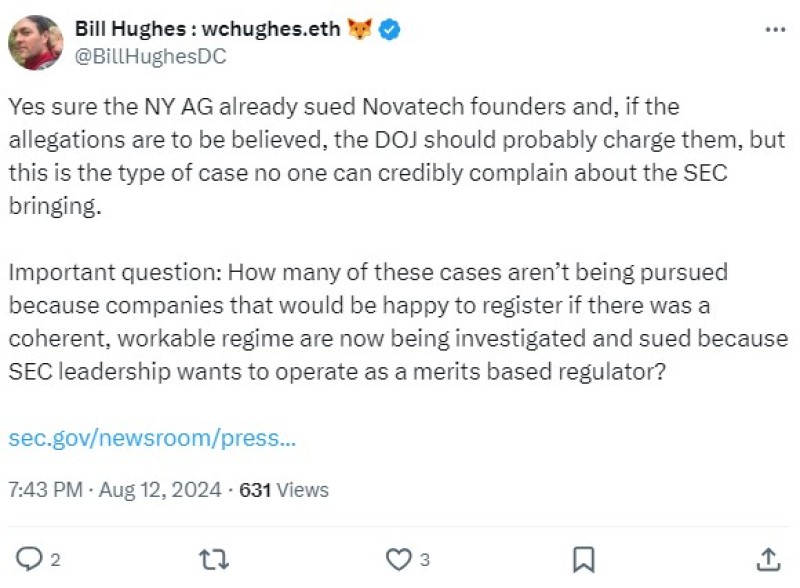The U.S. Securities and Exchange Commission (SEC) has filed charges against NovaTech for a $650 million crypto fraud, impacting 200,000 investors globally.
SEC Targets NovaTech Over $650 Million Crypto Fraud
The SEC’s complaint, lodged in the U.S. District Court for the Southern District of Florida, paints a damning picture of NovaTech’s operations from 2019 to 2023. According to the charges, NovaTech, led by executives Cynthia and Eddy Petion, lured investors with promises of immediate profits and the guarantee of capital safety. However, the reality was different, as the firm engaged in a multi-level marketing (MLM) scam that siphoned off millions in digital assets.
The complaint also accuses NovaTech of enlisting a group of promoters, including Martin Zizi, Dapilinu Dunbar, James Corbett, Corrie Sampson, John Garofano, and Marsha Hadley, to propagate the scheme. These promoters played a crucial role in attracting unsuspecting investors into the fraudulent operation, eventually leading to massive financial losses. As the scheme unraveled, NovaTech allegedly blocked withdrawals, further trapping investors' funds.
SEC's Stance on Crypto Fraud: A Firm Message
The SEC’s actions against NovaTech are part of a broader effort to clamp down on fraudulent activities in the crypto sector. "As we allege, MLM schemes of this size require promoters to fuel them, and today’s action demonstrates that we will hold accountable not just the principal architects of these massive schemes but also promoters who spread their fraud by unlawfully soliciting victims,” said Eric Werner, director of the SEC’s Fort Worth Regional Office, on August 12th. This statement underscores the SEC's commitment to pursuing the creators and promoters of fraudulent crypto schemes.
The NovaTech case is not an isolated incident. This marks the second time a U.S. regulatory body has targeted the trading firm for crypto fraud. In June, New York Attorney General Letitia James also filed charges against NovaTech, accusing the company of running a criminal operation. The repetitive nature of these charges raises questions about the effectiveness of the regulatory framework governing cryptocurrencies.
This has led to criticism from within the industry. Bill Hughes, an attorney for Consensys, reacted to the news by questioning whether such frauds could be prevented if the SEC provided clearer guidelines and allowed crypto service providers to register based on merit. This sentiment reflects a broader discontent among crypto stakeholders, who argue that the SEC’s current “regulation by enforcement” strategy is insufficient.

Regulation vs. Innovation in Crypto
The debate over how to regulate the cryptocurrency industry continues to rage, with SEC Chair Gary Gensler maintaining that most cryptocurrencies should be classified as securities and thus fall under federal securities laws. This position has sparked numerous legal battles, including high-profile cases against major crypto companies like Coinbase and Ripple.
As the SEC continues to assert its authority, the crypto industry remains in a state of flux, with regulatory uncertainty creating challenges for both established players and newcomers. The NovaTech case serves as a stark reminder of the risks inherent in the crypto market and the ongoing struggle between innovation and regulation.
 Peter Smith
Peter Smith

 Peter Smith
Peter Smith


